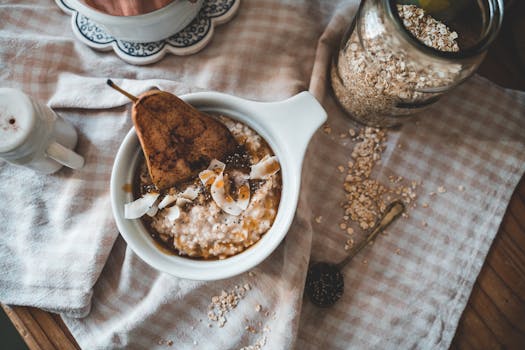Unlock Your Day's Potential: Understanding When to Eat Breakfast Hourly for Optimal Health & Productivity

The Art of Timing Your Breakfast: Why it Matters
Navigating the labyrinth of dietary advice can feel daunting. "What to eat" guides are increasingly commonplace. Still, one often underemphasized aspect is the timing of your meals, specifically, breakfast. Let's sift through the clamor and hone in on the critical question, "When should I eat breakfast?"
How Breakfast Sets the Tone for the Day
In the rhythm of our daily routine, breakfast performs the role of an opening act. It offers the initial energy boost to navigate the imminent day's hustle. However, comparable to an orchestra without a conductor, a day that commences with an ill-timed breakfast often feels disjointed.
The Significance of Breakfast Timing
The timing of our breakfast is crucial as it impacts our energy vitality throughout the day. Scheduling our breakfast right can help regulate our metabolism, facilitate digestion, and enhance concentration and productivity. An optimally timed breakfast jump-starts our day.
Decoding the "When" of Breakfast
Strategizing the 'breakfast timing' begins with understanding the 'why.' Experts advocate for dining within the first hour of waking up, assuming you're an early riser. The rationale is simple; our bodies have fasted overnight, and the first meal of the day activates our digestive system and metabolism.
Consuming breakfast within the first hour of waking up aids in stabilizing our blood sugar levels, crucial for sustaining energy and focus throughout the day. Neglecting to fuel up on time, however, can curtail your morning productivity.
The Impact of Delayed Breakfast
Suppose you delayed capturing the golden hour for a perfect photo, only to discover a dead camera battery. Equally, if you skip the first meal of the day, you encounter a disconnect between need and readiness. This lapse results in irritability and concentration loss.
Unlike early birds, night owls may drift into their mornings slightly later. In such cases, a breakfast after two hours of waking up allows your body to fully wake up and activate the metabolism engine.
The Downside of Prolonged Fasting
Despite the shift in breakfast timing for late risers, you shouldn't wait more than two hours after waking up to eat breakfast. This prolonged fast could lead to overeating, metabolic imbalances, and mood fluctuations. Moreover, repeatedly skipping breakfast presents potential long-term health problems.
Tailoring Your Breakfast Ritual
Researching 'breakfast timing' is not about watching the clock, but about creating harmony between our body’s needs and our daily routine. Breakfast delivers maximum benefits when it matches your waking rhythm and daily schedule.
Individualizing Your Breakfast Timing
The timing of breakfast is not a universal concept; it varies with each person's schedule and body needs. Accepting this makes us realize there's no one-size-fits-all answer. Instead, we need to pay attention to our bodies and adjust our meals for optimal daily performance.
Concluding Thoughts: Embrace Your Breakfast Routine
By understanding the rhythm of your body, you can embrace a morning routine that includes timing your breakfast. You'll find that this small act can significantly influence your energy levels and outlook for the entire day.
To optimize your daily performance, aim to break your fast with a balanced meal, one to two hours after waking. Properly timing your breakfast might just be the secret to unlocking sustained, pulsating energy to conquer each day.